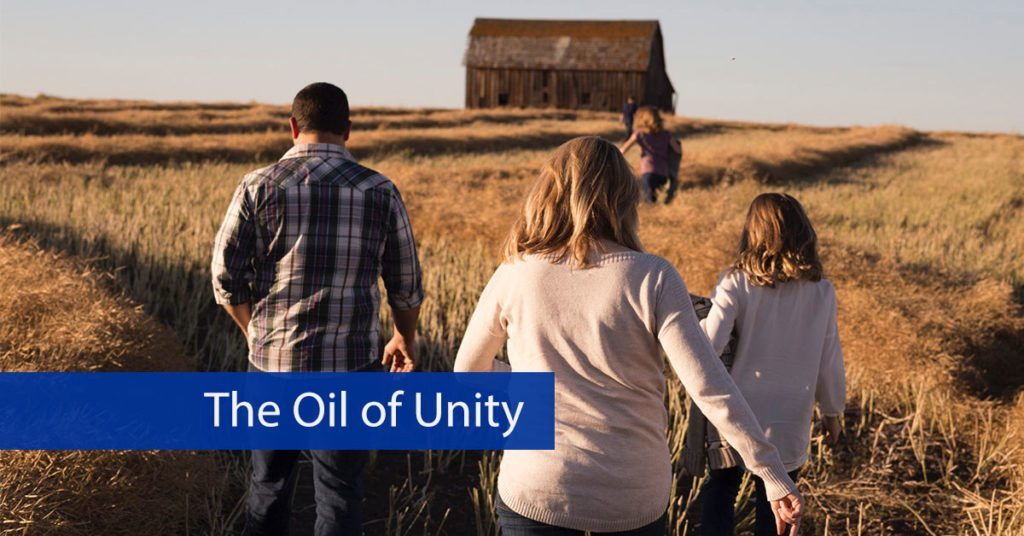 Unity and harmony were non-existent in my childhood home. Neither my parents nor my siblings dwelt “together in unity.” Not until I later began to study the Word of God did I realize just how important these words are. Psalm 133 paints a beautiful picture of unity in the anointing of Aaron, the high priest, brother of Moses. The Scripture describes it being poured over Aaron’s head, flowing sweetly and smoothly, fragrantly down his face, through his beard, all the way to the hem of his priestly garments. Why is that description important? Unity is the glue that holds a family, a Church, a nation together.
Unity and harmony were non-existent in my childhood home. Neither my parents nor my siblings dwelt “together in unity.” Not until I later began to study the Word of God did I realize just how important these words are. Psalm 133 paints a beautiful picture of unity in the anointing of Aaron, the high priest, brother of Moses. The Scripture describes it being poured over Aaron’s head, flowing sweetly and smoothly, fragrantly down his face, through his beard, all the way to the hem of his priestly garments. Why is that description important? Unity is the glue that holds a family, a Church, a nation together.
Unity is the glue that holds a family, a Church, a nation together.
In Psalm 133, David extols the value of unity. The result of such harmony is a place where God’s people are refreshed and strengthened by His Spirit—just as the dew nourishes the dry ground! It is the place where God commands blessing and where His anointing flows! Vine’s Expository Dictionary records that the word “together” in Psalm 133:1 “emphasizes a plurality in unity. In some contexts, the connotation is on community in action.” And it is the place where zoe—Hebrew for life, the eternal, God-kind of life—flows freely!
The Hebrew word Yâchadh in verse one means “oneness, concord;” it denotes a people drawn together for one purpose—to follow Jehovah, fulfill His plan and purpose, and to dwell together under the umbrella of His blessings. Aaron wasn’t anointed with just any old oil, with whatever was handy. No, it was the holy anointing oil used only in Temple ceremonies. It consisted of four spices: myrrh, cinnamon, sweet cane (or sweet calamus), and cassia. They were mingled together with olive oil, which to the ancient Hebrews was enormously symbolic and useful.
It was a balm, a soothing healing oil poured into wounds. It was fuel to keep lamps burning and provide light. It was a food, blended with grains and other foods to fill the hungry. Jeremiah asked, “Is there no balm in Gilead?” (Jeremiah 8:22, KJV). As the spices enfolded Aaron, it became a picture of Yâchadh—oneness—of a group of very different people united in service to Jehovah. As the oil was infused with the spices, it became holy. None of the ingredients alone could make the anointing oil, but together they become a wonderful example of unity.





